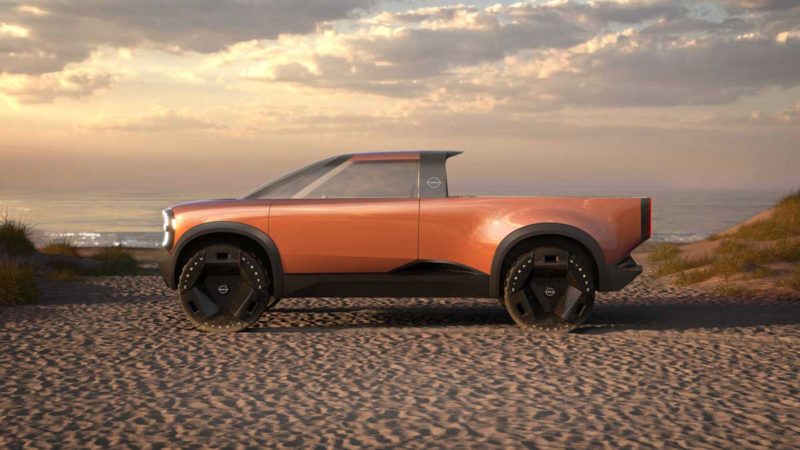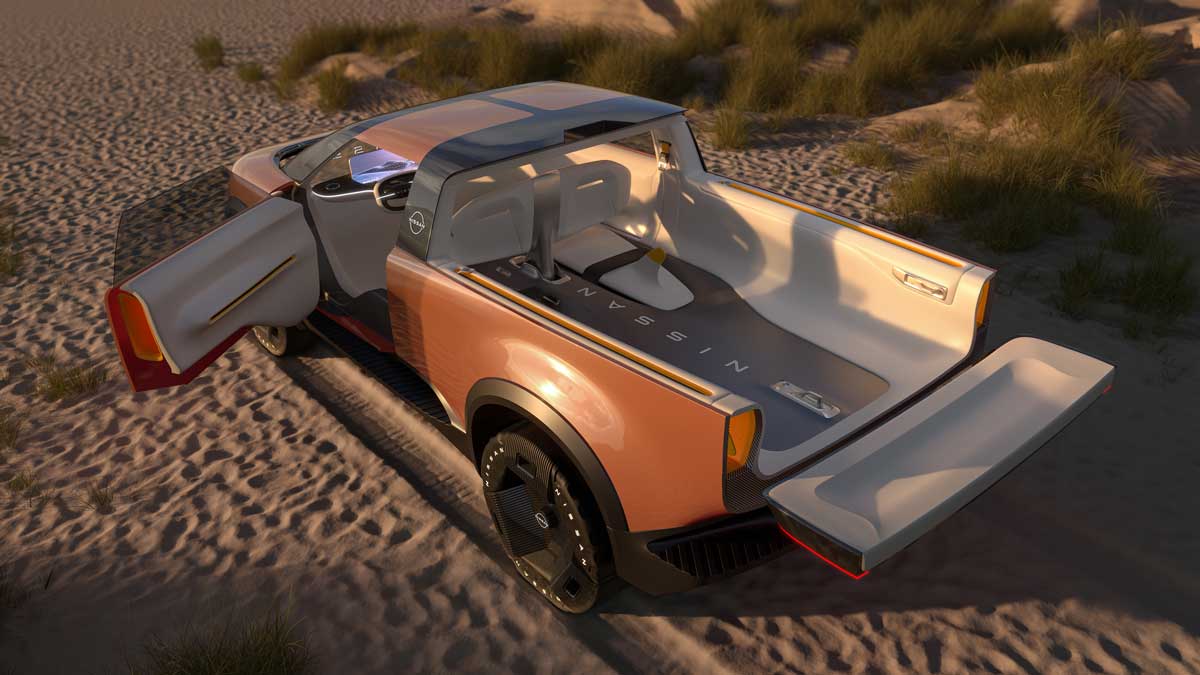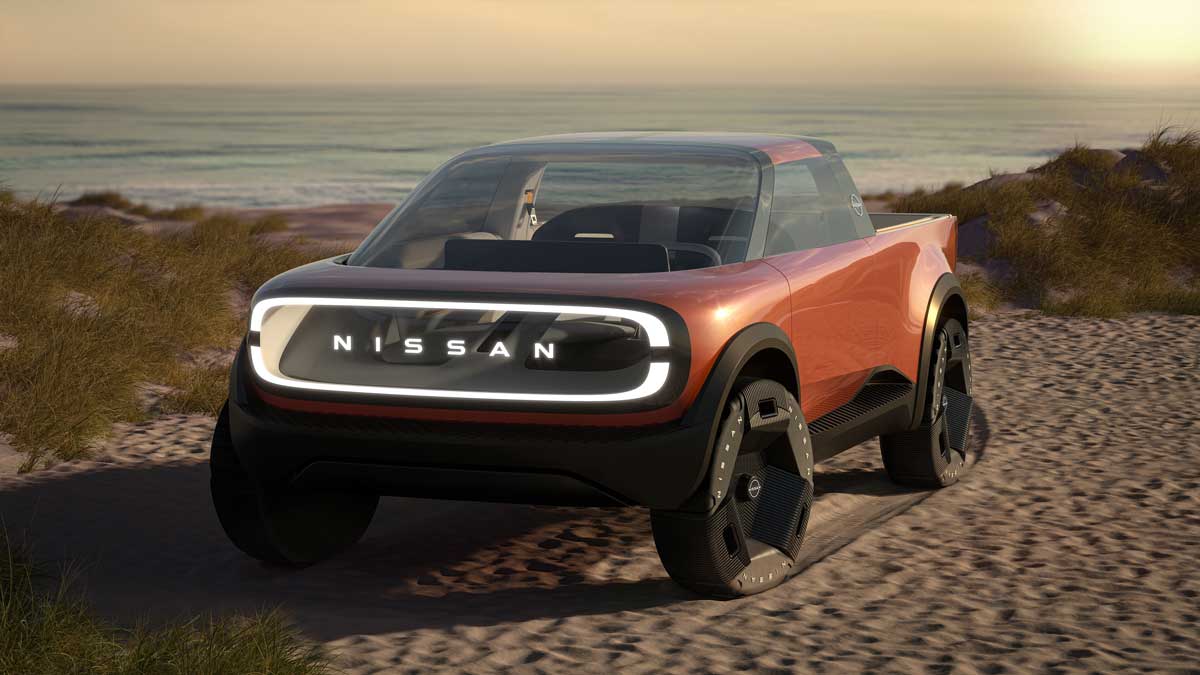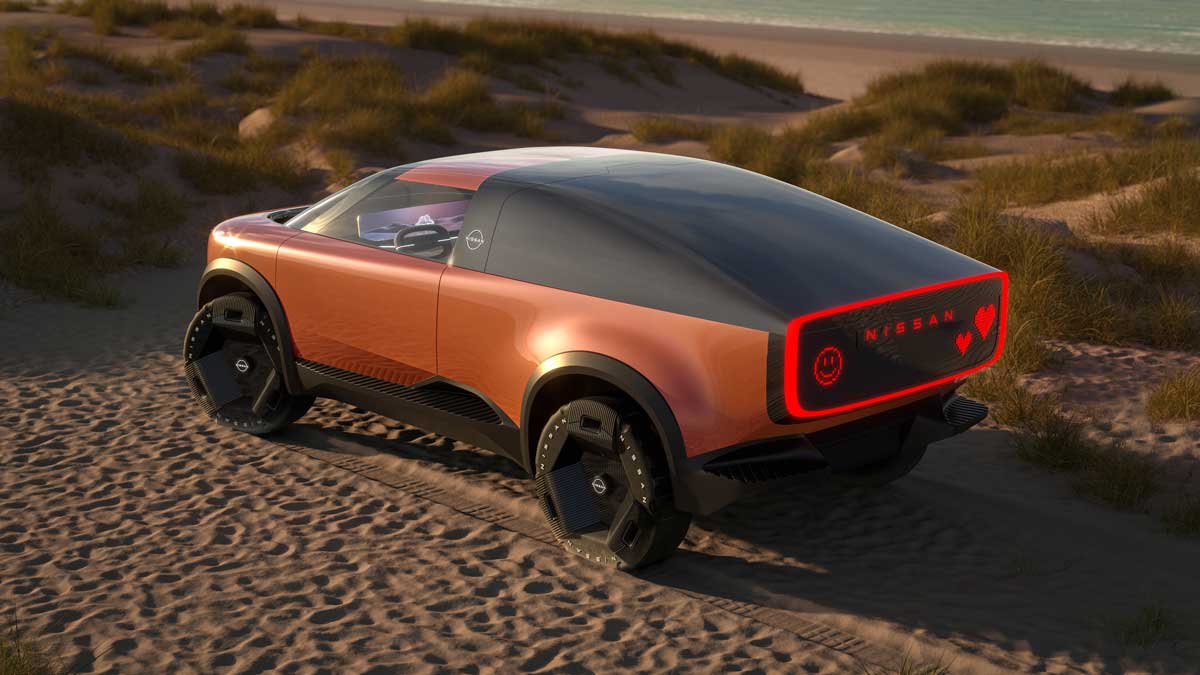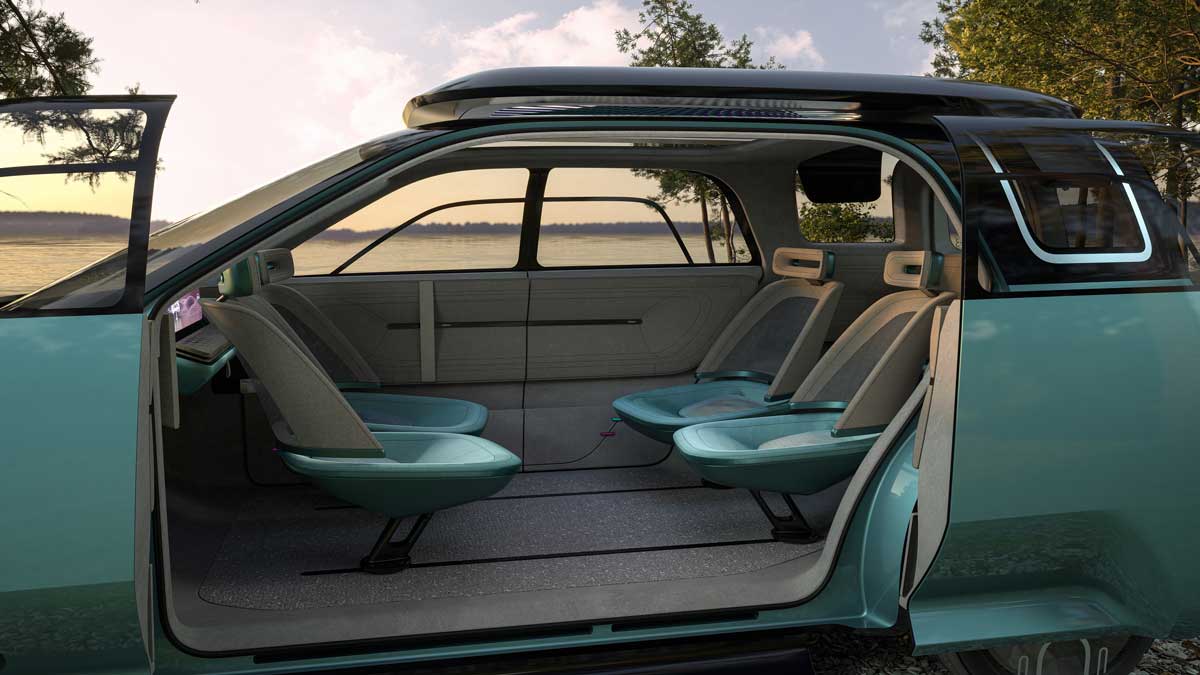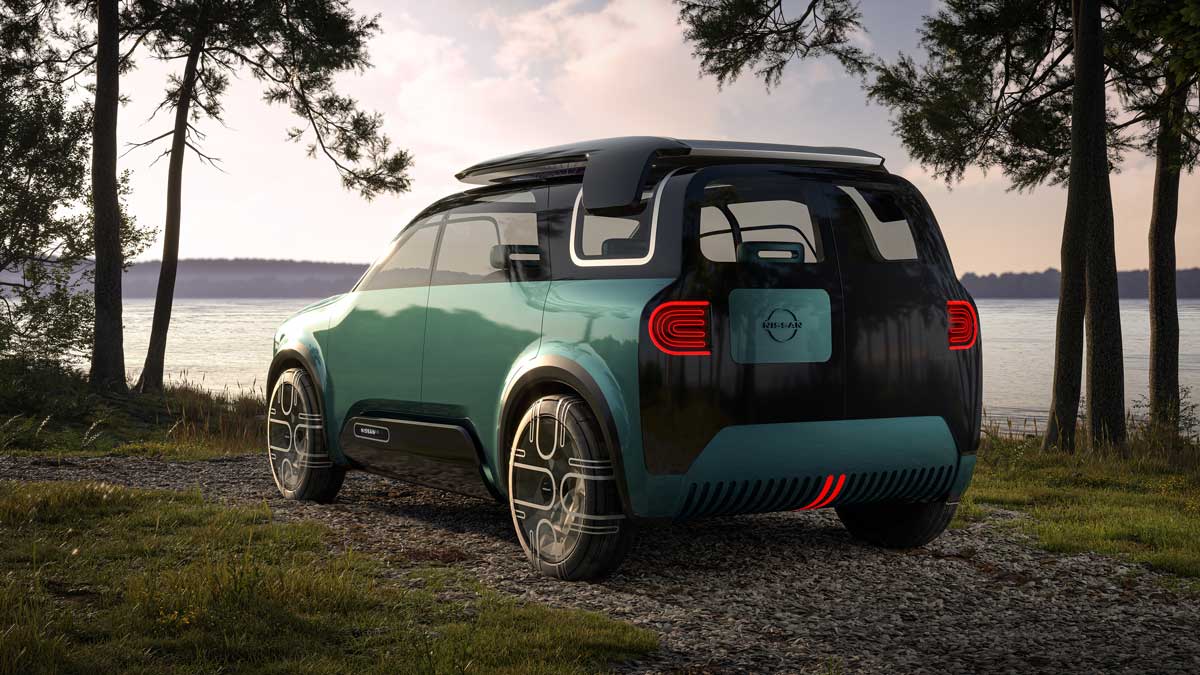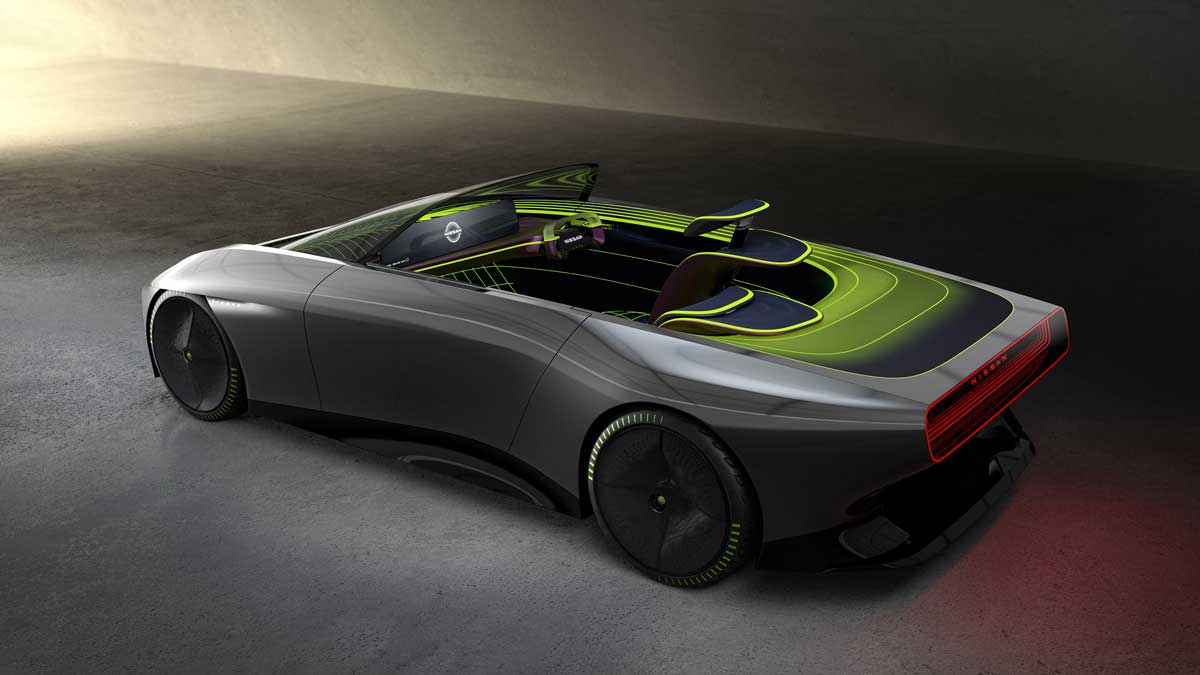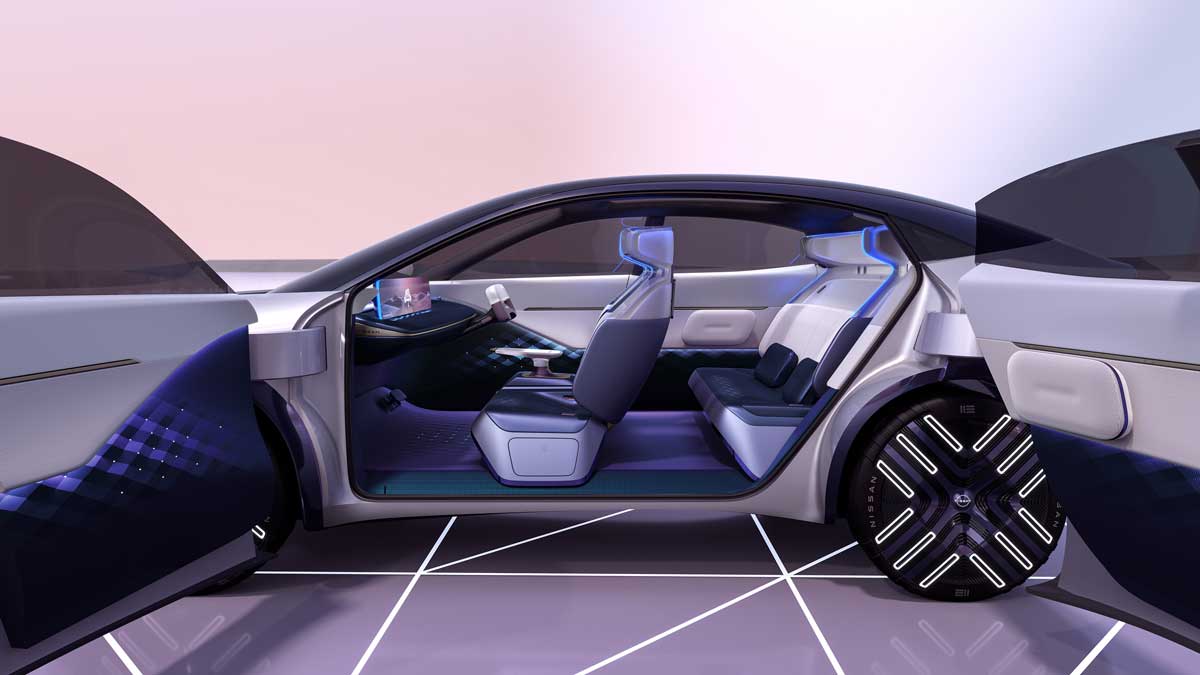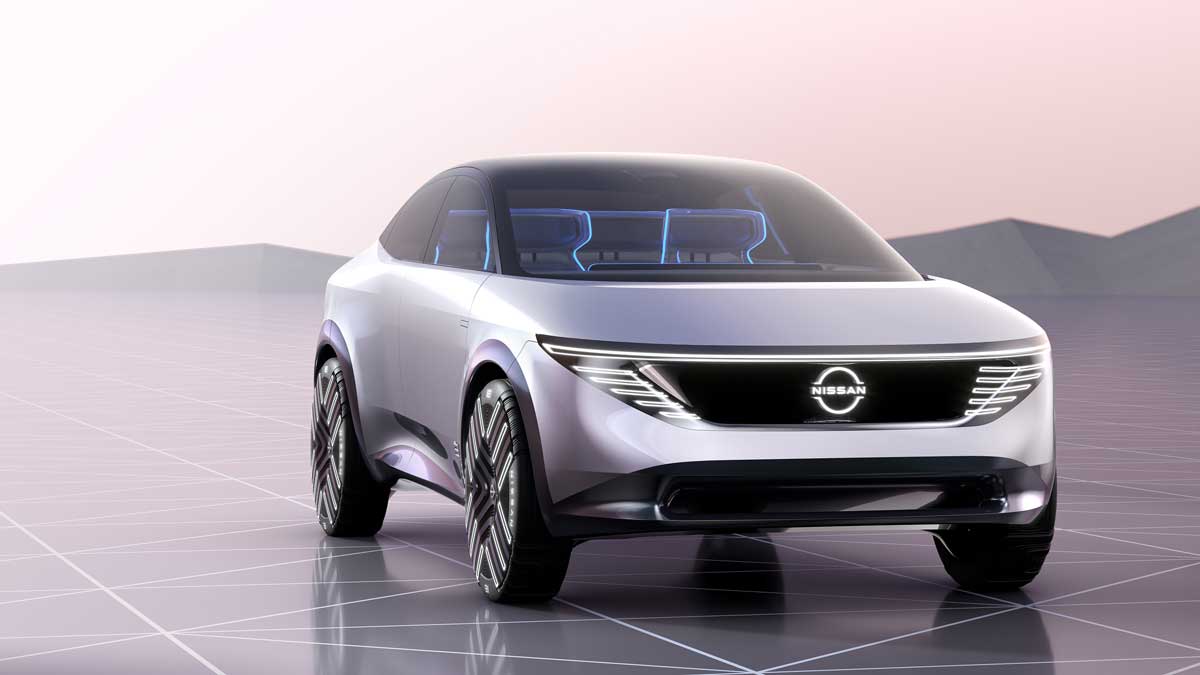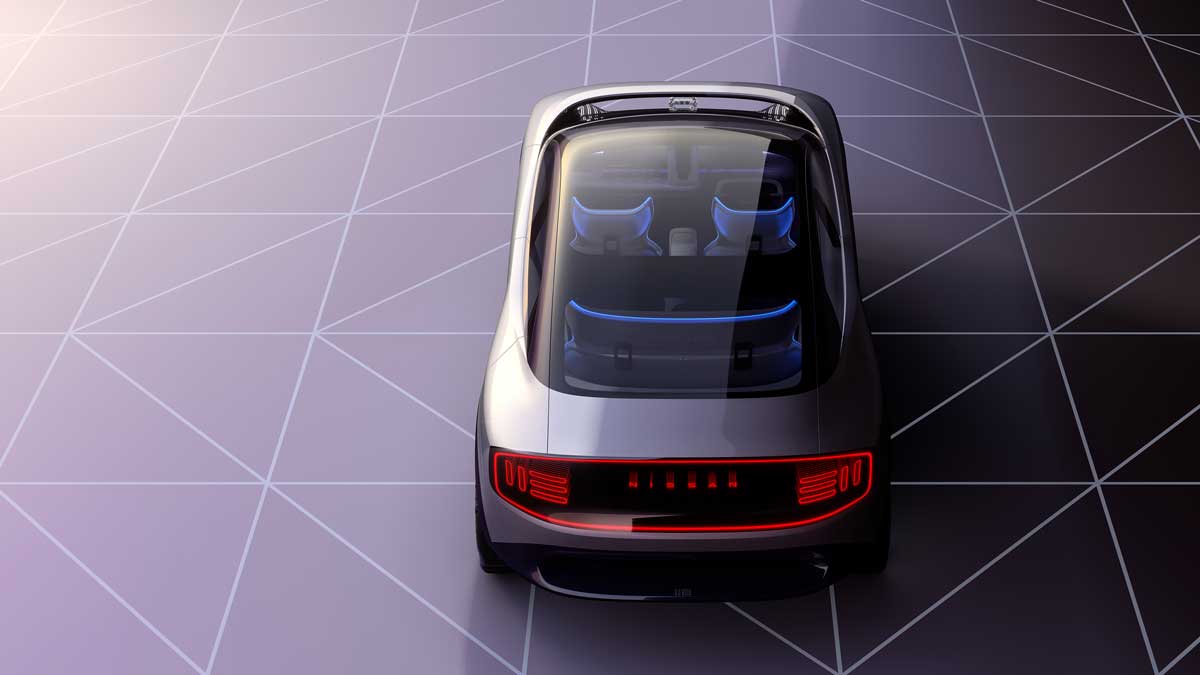Japanese carmaker Nissan has announced a new plan to launch 23 new electrified options, including 15 new pure electric cars and potentially an electric ute.
The “Ambition 2030” vision unveiled by Nissan includes a target of 50 per cent electric sales by 2030, which doesn’t sound all that much compared to other car companies and country targets, but the eye-catcher is the all-electric ute that would be modelled as a Navara EV, along with an nelectric sportscar and crossover, and a lifestyle-oriented people mover.
In Europe, where strict vehicle emissions limits are pushing carmakers to reduce fleet carbon averages, Nissan will aim to sell 75% electric vehicles by 2026. In Japan, China and the US the targets will be lower, with 55% targetted in its domestic market and just 40% in the latter two.
Nissan was once at the forefront of the electric vehicle revolution, having introduced its iconic Leaf in 2010, and rolling out vehicle-to-grid capabilities in its updated version.
“We are proud of our long track record of innovation, and of our role in delivering the EV revolution,” said Nissan COO Ashwani Gupta in a statement.
“With our new ambition, we continue to take the lead in accelerating the natural shift to EVs by creating customer pull through an attractive proposition by driving excitement, enabling adoption and creating a cleaner world.”
In addition to the Leaf, Nissan also sells the Ariya electric SUV, its first EV with CCS2 charging and which is already available for order in Japan.
Its longer-range Leaf e+ recently gained a five star safety rating from European body NCAP, and has been available in Australia since April 2021.
In addition to targetting higher EV sales, Nissan is also planning to go to market with its own solid-state batteries by 2028, which it says will reduce charging times by a third of the time it takes to charge current EVs. By 2026, it plans to be making 52GWh of batteries, and by 2030, it wants to expand this capacity to 130GWh.
It will open a pilot plant at which to test solid-state battery production in Yokohama by 2024, and by 2028 it says it can reduce the cost of making solid-state batteries to $US75kWh – 25% less than the “magic number” needed to bring EVs to price parity with combustion vehicles.
In another bid to reduce manufacturing costs, Nissan will take a leaf (yes, yes) from Tesla’s book to localise parts and suppliers including introducing its EV36Zero hub concept, which it launched in the UK in July and which includes implementation of renewable microgrids, battery making facilities and EV manufacture, to core markets including Japan, China, and the US.
It will also look to expand its Propilot driving assistance technology to 2.5 million vehicles by 2026 including its premium Infiniti brand, and look to further develop autonomous driving technology, it said.
While the carmaker did not elaborate on what new electric vehicles it would be bringing to market over coming years, a number of images that were shared with the release include some interesting additions to its electric offerings.
Top of the list is perhaps the electric ute, which is a single-cab with integrated tray that appears to be targetted at surfies. Another is a retro-style sports car that appears to draw strongly from 1990s Z prototypes, and another is a people mover with spin-around seats that can be opened up to provide lounge space in the great outdoors.
There is also a low-sitting crossover with freestyle doors that perhaps is Nissan’s answer to the Mazda MX-30.
Nissan’s upcoming Nissan Ariya debuted recently at the Los Angeles auto show, with the revelation that it would start in the US at about $US46,000 ($A64,450 converted).

Bridie Schmidt is associate editor for The Driven, sister site of Renew Economy. She has been writing about electric vehicles since 2018, and has a keen interest in the role that zero-emissions transport has to play in sustainability. She has participated in podcasts such as Download This Show with Marc Fennell and Shirtloads of Science with Karl Kruszelnicki and is co-organiser of the Northern Rivers Electric Vehicle Forum. Bridie also owns a Tesla Model Y and has it available for hire on evee.com.au.

